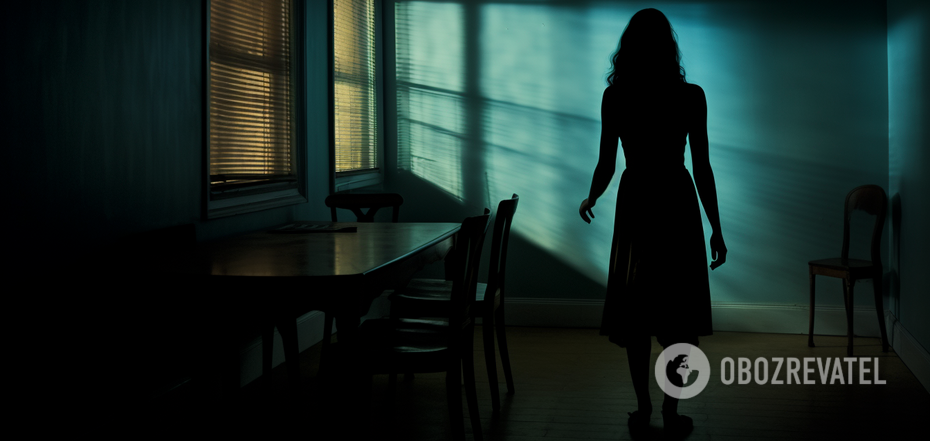News
Scientists explain why we may feel someone's presence in an empty room
Many people sometimes complain about this mystical experience when they feel like they are not alone in an empty room. It's such an unusual experience that some are even afraid to admit it.
One way or another, scientists became interested in this phenomenon, and they first tried to uncover its mystery in the late 19th century. Modern science has several quite plausible explanations, and they were described by Science Alert.
How science made the first attempts to explain this phenomenon
The British Society for Psychical Research (SPR), founded in 1882 and still working to explain various paranormal phenomena from a scientific point of view, conducted a large-scale survey at the dawn of its existence. More than 17,000 people in the United Kingdom, the United States, and Europe were asked how often they encountered signs that foretold death. As a result, in 1894, a work entitled "A Census of Hallucinations" was published, which showed that people see such signs too often to be purely accidental. Every 43 respondents reported such experiences.
Even earlier, in 1886, the work "Phantasms of the Living" was published. In it, the society's specialists described 701 cases of telepathy, premonitions, and other unusual phenomena. One of the examples described was the case of a priest from Davenport in Plymouth. He said that when he traveled to New Zealand, he felt the nighttime presence of a certain being who warned him to cancel a boat trip he was to take in the morning. Later, the priest learned that all the participants of that trip drowned.
From a modern point of view, these works have low scientific value. However, at least they proved that the phenomenon not only exists but is also quite common and worth further study.
What is hypnagogia?
Later, the researchers noticed that many of the cases described by SPR resemble hypnagogia, which is a hallucinatory experience that a person can experience on the verge of sleep and waking up. Scientists now associate the feeling of an alien presence with sleep paralysis. According to statistics, about 7 percent of adults experience this eerie condition at least once in their lives. Sleep paralysis occurs due to a disruption of REM sleep. A person wakes up and feels that he or she cannot move. The physiological mechanism that makes us stay still during sleep is still active, while consciousness has already turned on. According to scientists, people feel the presence of something foreign and even malevolent along with the horror of their bodies not obeying them in more than half of such cases.
It is noteworthy that signs of such creatures are also found in the myths of ancient peoples. An example of such a creature is the Portuguese Fradinho da Mao Fourada, who can penetrate people's dreams. Ogun Oru from the fairy tales of the Yoruba people in Nigeria can also be sent by "magic".
But why can a sense of presence occur during episodes of sleep paralysis? Researchers J. Allen Cheyne and Todd Girard tried to explain this. In their opinion, such an awakening provokes a feeling of great vulnerability in a person, and the brain fills the gap between the feeling and the presence of a threat. If a person feels like a potential victim, then a predator must be involved in the situation, and our own imagination draws him or her.
Another approach to explaining the presence effect was to compare the common features of sleep paralysis episodes with other similar situations. Research over the past 25 years has shown that these sensations are accompanied not only by hypnagogic phenomena but are also observed in Parkinson's disease, psychosis, near-death experiences, and bereavement. Thus, there seems to be no direct connection with sleep.
The mind-body connection
Neurological studies and brain stimulation experiments have shown that the effect of presence can be triggered by certain bodily signals. In 2006, neuroscientist Shahar Arzy and his colleagues conducted such an experiment. They managed to create a "shadow figure", a double for a woman whose brain was electrically stimulated at the left temporoparietal junction. This figure seemed to reflect the position of the woman's body, with this connection in the brain combining information about our feelings and bodies.
A series of experiments conducted in 2014 also showed that disrupting sensory expectations seems to induce a sense of presence in some healthy people. The researchers made the participants feel as if they were touching their own backs by synchronizing their movements with a robot behind them.
The subjects' brains interpreted this synchronization and concluded that it was their body that created this sensation. And when this synchronization was broken by unbalancing the robot's movements, some people suddenly felt the presence of someone else. Changing sensory expectations of a situation causes a kind of hallucination.
The logic described above can be applied to sleep paralysis as well. At such moments, the usual information about the body and its sensations is disrupted, and this can provoke the effect of presence. A person may feel as if someone is near them, although they create all the sensations on their own.
Although research on the presence effect has been going on for centuries, scientists are only at the beginning of unraveling this phenomenon. Further research will continue.
Earlier, OBOZREVATEL reported that scientists have come closer to understanding the near-death experiences of a person: the conclusions are puzzling.
Subscribe to OBOZREVATEL on Telegram and Viber to keep up with the latest news



























